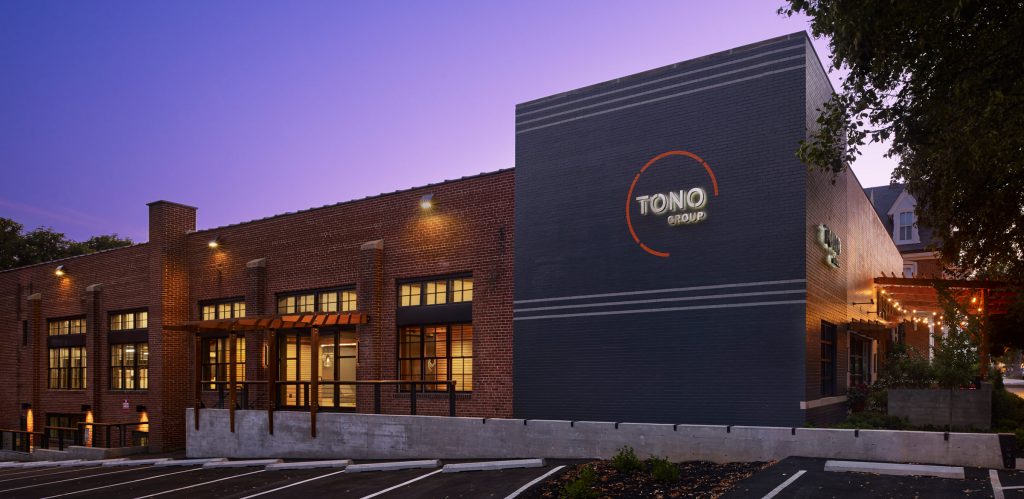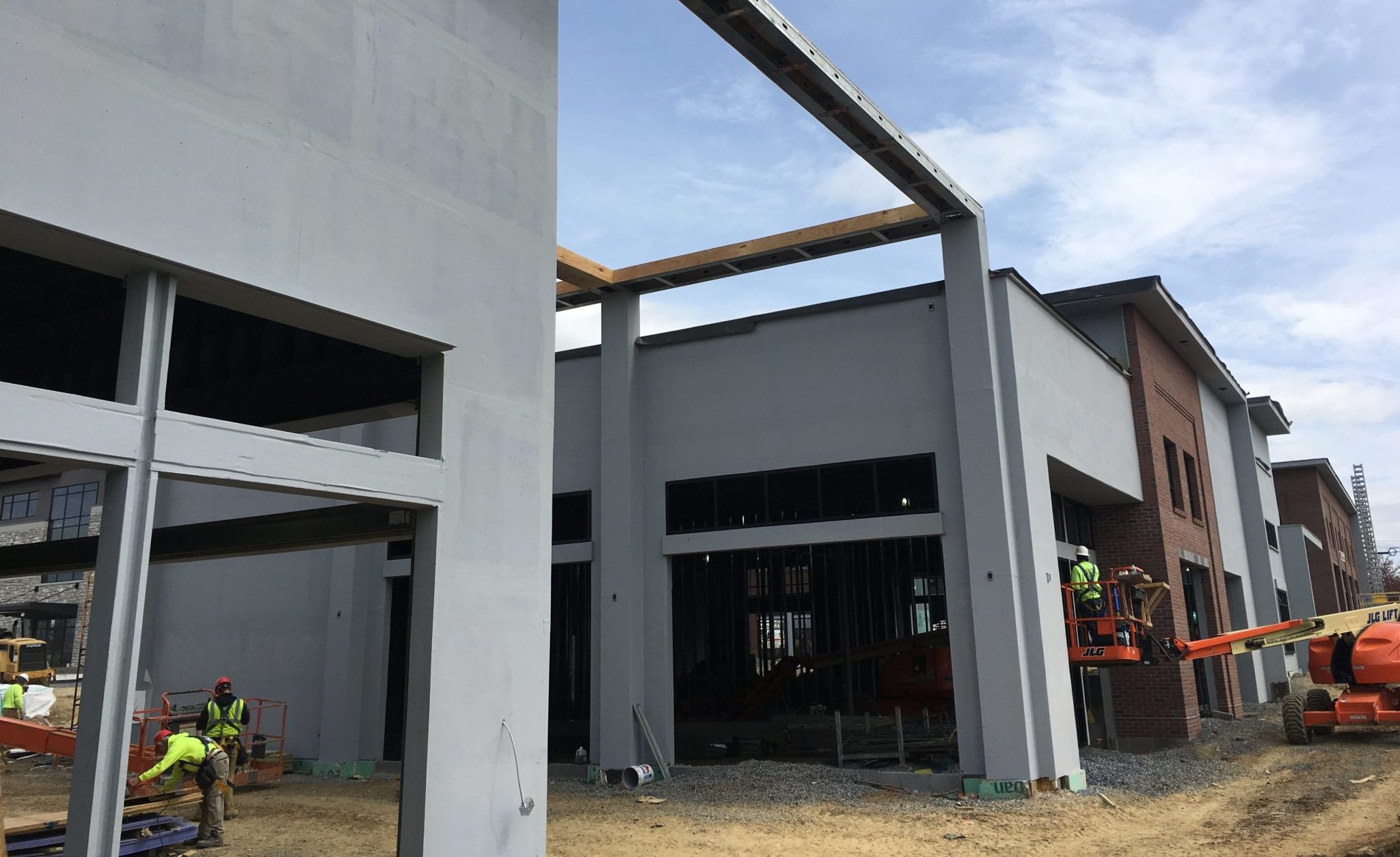
5 COMMONLY USED BUILDING INDUSTRY ACRONYMS: RULES & REGULATIONS
Those working in the design, construction, and real estate industries use a number of acronyms in their average workday. To someone new to the industry or unfamiliar with the professional services we at TONO Group provide, there might be a small learning curve. It’s our hope that this post gives you a little more insight into the acronyms we use when discussing rules and regulations relating to the built environment.
OSHA: Occupational Safety and Health Administration
As part of the US Department of Labor, OSHA was created by congress to ensure safe and healthful working conditions for men and women. Under Section 5 of the OSH Act of 1970, each employer and employee must adhere certain guidelines to maintain a safe work environment.
Helpful Tip: Check out OSHA’s list of topics to see specific regulations related to various industries.
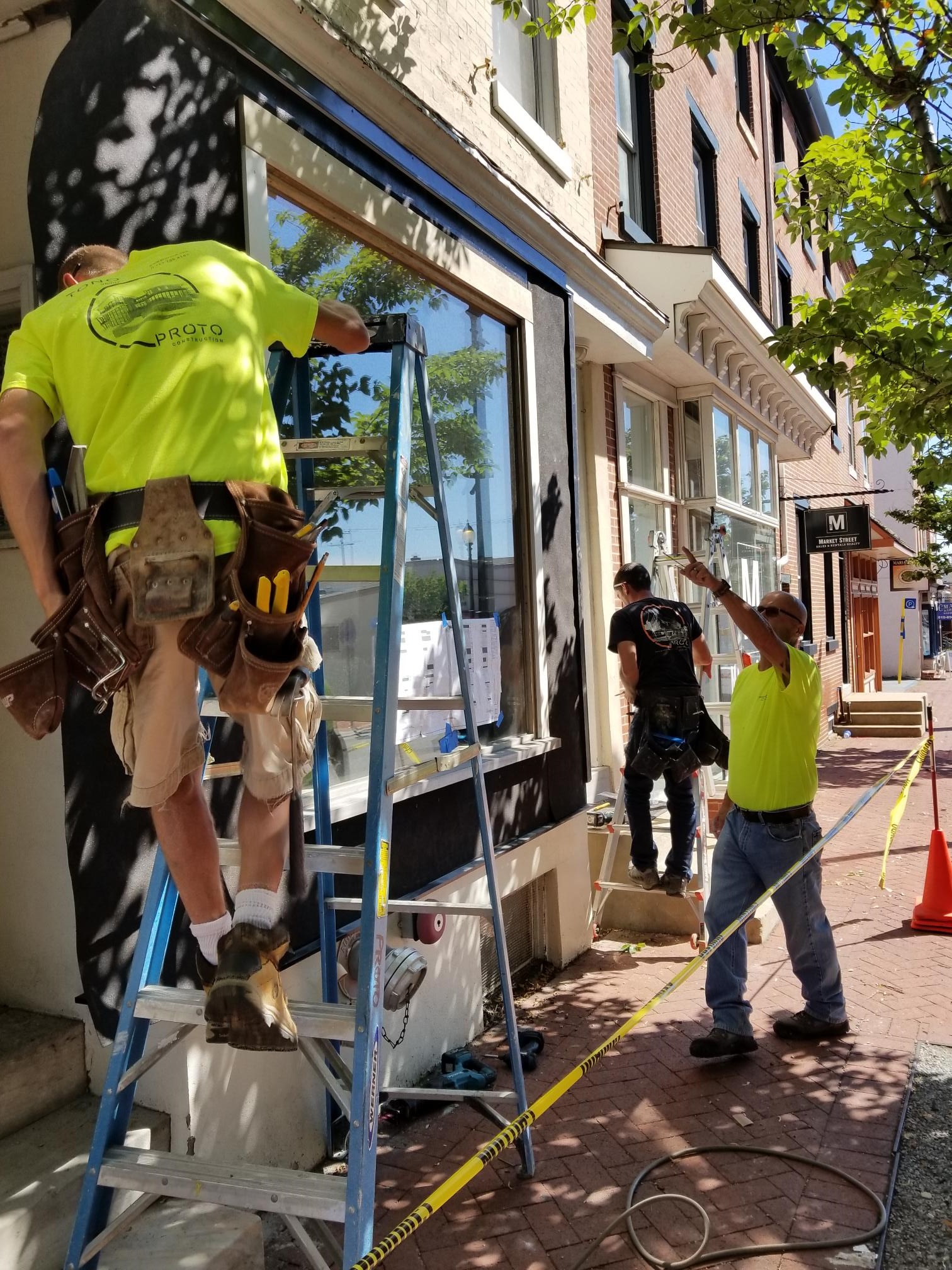
ADA: American with Disabilities Act
Signed into law in 1990, the ADA prohibits discrimination against individuals with disabilities, ensuring that the disabled have the same rights and opportunities as everyone else in all areas of public life.
Helpful Tip: The ADA is broken into 5 Titles, each relating to a particular aspect of public life, including public accommodations and commercial facilities.
FFHA: The Federal Fair Housing Act
This legislation prohibits discrimination on the basis of race, religion, sex, nationality, familial status, or disability by direct providers of housing.
Helpful Tip: The U.S. Department of Housing and Urban Development (HUB) created a manual to assist designers and builders in meeting the accessibility requirements of FFHA.

Source: Equal Rights Center
IBC: International Building Code
The International Building Code provides safeguards from hazards associated with the built environment. It encompasses a set of explicit guidelines that aim to protect public health, safety, and general welfare.
Helpful Tip: The IBC is a model code, meaning governmental jurisdictions are able to amend the code to reflect their local practices and laws. Thus, not all municipalities subscribe to the same exact code requirements. An architect or municipality official can provide guidance concerning what is and isn’t allowed in a specific locale.
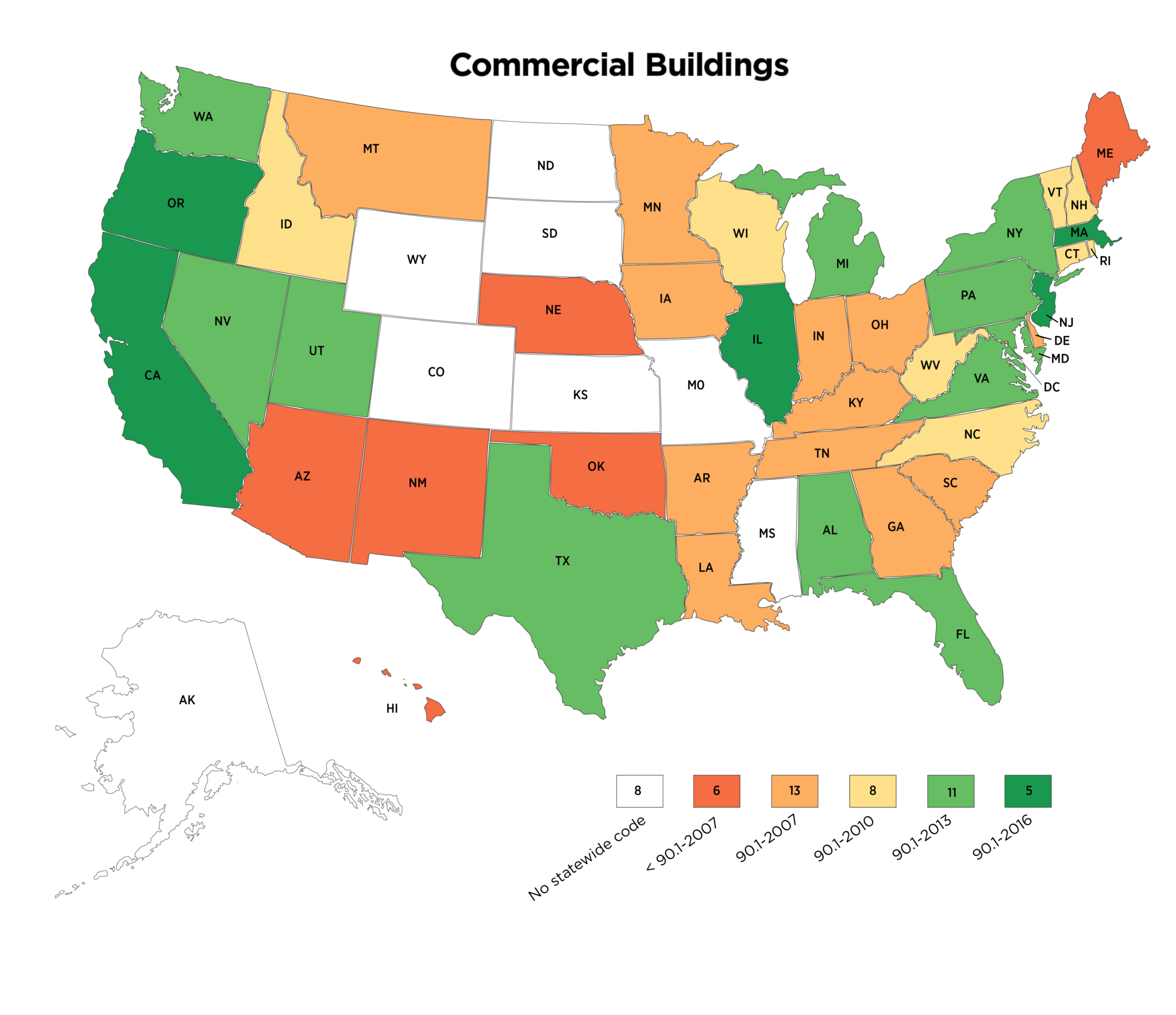
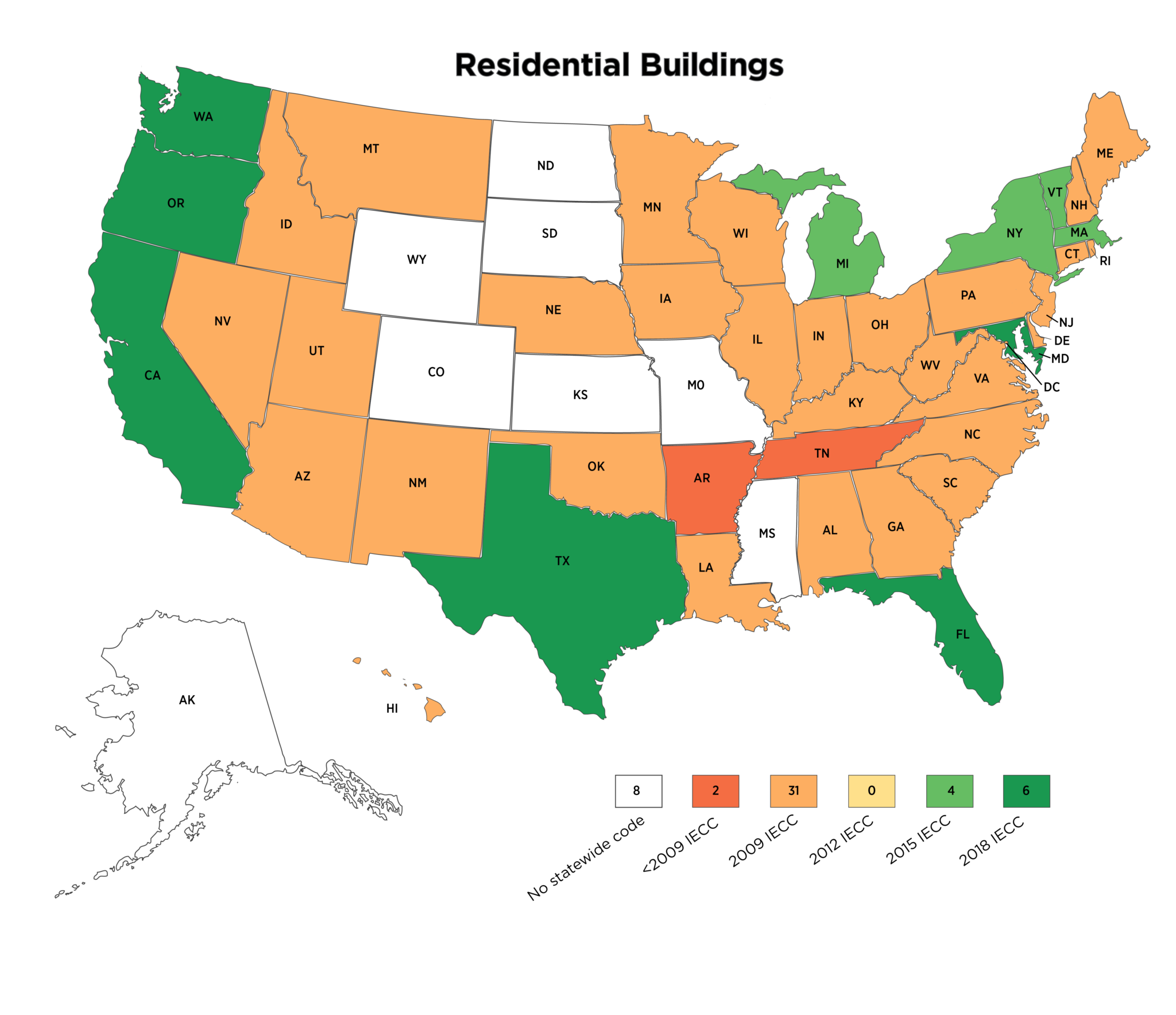
Adoption of energy codes across the U.S. for commercial and residential buildings. Source: U.S. Department of Energy
UCC: Uniform Construction Code
The UCC is Pennsylvania’s statewide building code, incorporating chosen regulations and applying them to commercial and residential construction within the Commonwealth.
Helpful Tip: See the full list of codes Pennsylvania has adopted.

